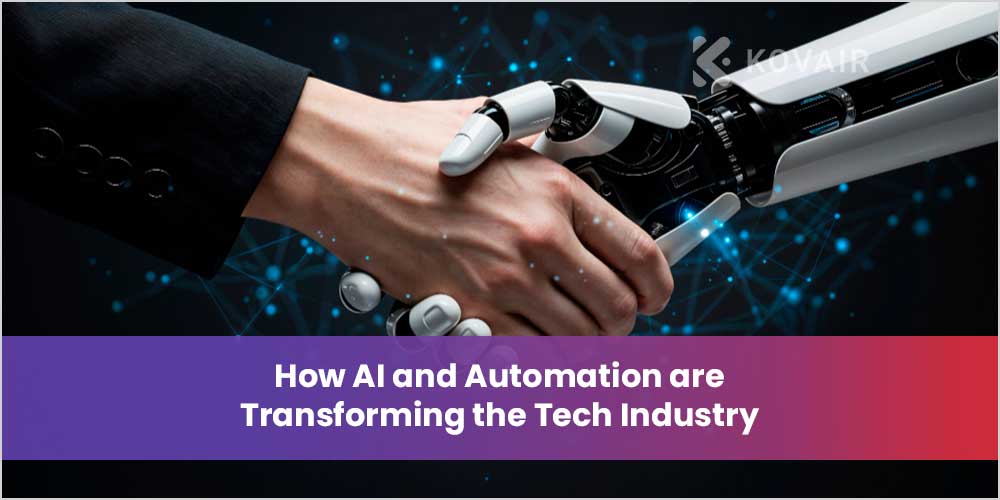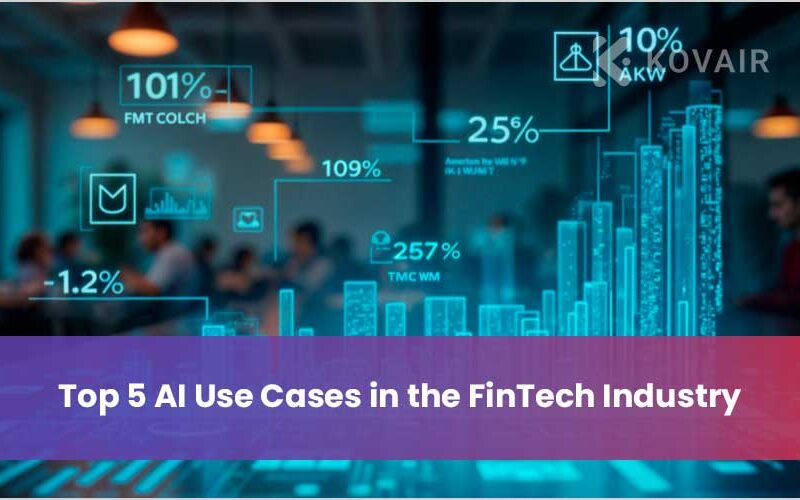
The tech industry is experiencing one of the largest changes in its history, driven by Artificial Intelligence (AI) and automation. Once taken into consideration, futuristic principles, these technologies are now middle to how organizations innovate, scale, and compete. From software program development and cloud infrastructure to cybersecurity and customer support, AI and automation are redefining techniques, roles, and even the abilities required within the staff.
This fast evolution provides each opportunity and challenges for professionals in the tech region. Companies are leveraging AI to enhance performance, reduce operational costs, and enhance decision-making, while automation is taking on repetitive and time-eating obligations, permitting human talent to cognizance on strategic and innovative endeavors.
In this article, we’ll discover how AI and automation are reworking the tech industry, the impact on jobs and skillsets, and how experts can adapt to remain relevant in this speedy-changing landscape.
1. Streamlining Software Development with AI and Automation
One of the most intensive effects of AI and automation is seen in software development. Traditional software growth processes often include long-term coding cycles, tests, and troubleshooting, but AI devices now accelerate these steps.
- Automatic Code Generation: AI-operated equipment such as Github Copilot and Tabnine assists developers by predicting and generating encodes, which reduces the time spent on repeated coding work.
- Automatic Testing and Troubleshooting: AI tools can detect errors, security weaknesses, and performance problems quickly compared to manual methods, and significantly improve software quality.
- Continuous Integration and Deployment (CI/CD): CI/CD ensures quick updates, even releases, and minimum downtime in pipelines.
This allows automation development teams to focus on rapid distribution of products, maintain better code quality, and focus on innovation instead of regular tasks.
2. Transforming Tech Job Roles and Required Skills
While AI and automation increase efficiency, they also change the nature of technical jobs:
- New Roles Emerge: AI, computer science, cloud architecture, and careers in machine learning techniques are in demand.
- Shift Against Strategic Work: Regular tasks such as manual testing or system monitoring are automated, and push professionals to focus on innovation, strategy, and creative problems.
- Shipment Requirements: Professionals must develop new skills such as AI model training, data analysis, and implementation of automation frameworks.
For students and activity seekers, studying the way to create an expert, AI-optimized resume, the usage of tools like a resume builder app can enhance their chances of getting noticed in an aggressive tech activity marketplace.
3. Revolution in IT operations with AIOps
Artificial Intelligence for IT Operations (AIOps) is another area that is changing the technical industry for IT operations. AIOps platforms analyze real-time data, identify patterns, and automate the resolution of the phenomenon.
- Future Maintenance: AI identifies potential system errors before reducing shutdowns.
- Result Adaptation: Automation ensures that servers and cloud infrastructure are adapted to cost and performance.
- Low Human Intervention: By automating regular monitoring, IT teams can focus on strategic reforms.
For large companies that control complex infrastructure, AIOps becomes indispensable for efficiency and cost reduction.
4. Automating Cloud Infrastructure Management
Cloud computing is the backbone of modern technology, and AI-operated automation makes it smart:
- Auto Scaling: AI predicts traffic patterns and automatically adjusts scaling resources and adapts to performance and costs.
- Load Balance: Automatic systems ensure uniform performance during traffic spikes.
- Cloud Cost Optimization: AI identifies low resources, which helps companies save money.
This means that automation companies can scale fast without worrying about manual resource allocation.
5. Personalizing Customer Experience Through AI
Customer enjoyment is no longer just an advertising and marketing priority; it’s a tech assignment. AI and automation are making personalised patron interactions feasible:
- Chatbots and Virtual Assistants: AI-powered bots like IBM Watson and Google Dialogflow offer on-the-spot, 24/7 assistance.
- Recommendation Engines: Companies like Netflix and Amazon use machine learning to research a person’s behavior and recommend products, content material, or services tailor-made to individual choices.
- Sentiment Analysis: AI gear screen client feedback throughout social media and aid channels to proactively beautify offerings.
These technologies are improving personal pride and loyalty, giving groups a significant competitive gain.
6. Enhancing Cybersecurity with AI-Powered Threat Detection
The increasing complexity of cyber attacks requires smarter and sharper reactions, and this is where AI is a game-changer.
- Threat Prediction and Prevention: AI analyzes mass data to detect unusual patterns before predicting potential attacks.
- Real-time Phenomenon Reaction: The automatic safety system immediately reacts to dangers to reduce hazards and downtime.
- Fraud Detection: In fintech and e-commerce, AI algorithms can detect scam transactions and suspicious activity with high accuracy.
Companies such as Dark and Crowdstruk move by using machine learning models that develop as new dangers, and provide strong protection in rapidly changing hazard landscapes.
7. Ethical Considerations and Responsible AI Use
Quick adoption of AI and automation improves important moral concerns:
- Data Privacy: User data protection is an important issue when using AI analysis.
- Prejudice and Justice: An Algorithm can achieve prejudice from training data, which can lead to unlawful consequences.
- Job Offset: While automation creates new roles, it also risks changing some repetitive jobs.
Technology companies are now investing in AI Ethics Framework and Clear AI models to ensure transparent, fair, and responsible use.
8. Preparing for the Future: How Professionals Can Stay Relevant
To bloom in this new era, need technical professionals and job seekers:
- Upskill Continuously: Learn AI, automation tools, and cloud computing. Platforms such as Coursera, edX, and Udemy offer relevant courses.
- Build Problem-Solving and Creative Thinking: Automation handles regular functioning; People are distinguished in strategic thinking and innovation.
- Network and Part Knowledge: Technical forums, webinars, and communities to keep up to date on trends.
- Adopt a Mindset: Stay favorable and open to learn new equipment as the technology develops.
Those who embrace lifelong learning will find it indispensable not only relevant, but also in the AI race workplace.
Conclusion: Embracing the AI and Automation Revolution
AI and automation are no longer alternative upgrades – they are integrated parts of the technical industry. These technologies run with outstanding efficiency and innovation, and increase software development to bring revolution and work collections in cybersecurity.
For professionals, this modification is both an undertaking and a possibility. Staying relevant approach continuously upgrading technical and analytical capabilities, adapting to new roles, and leveraging the same technologies shaping the enterprise. Whether you’re a software engineer, IT professional, or aspiring tech professional, embracing AI and automation will not only stabilise your position within the personnel; however, also role you as a frontrunner in the subsequent wave of technological progress.



